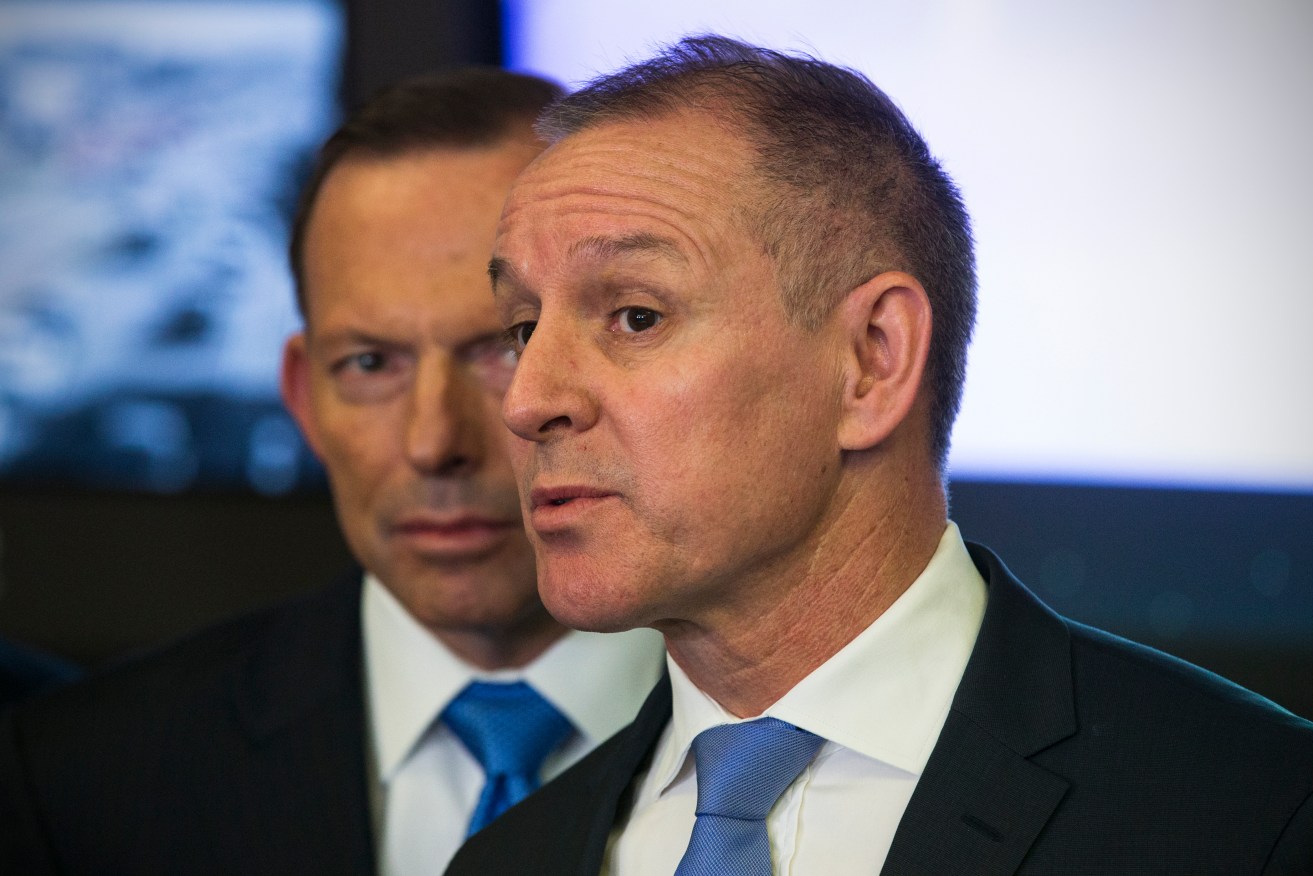A tax, defence and the indefensible
Behind a grim pall of smoke, Jay Weatherill has this week made perhaps his most audacious gambit as Premier, writes Tom Richardson.

Tony Abbott will be remembered with fondness by Jay Weatherill's' Labor. AAP Image/Ben Macmahon
And so South Australia once again picks through the smouldering rubble and ruin of nature’s indifference, as townships and communities lie broken, figuratively and literally.
The human spirit is a resilient beast, and as such there is always that unspoken assumption that the proverbial phoenix will ultimately rise from the still-glowing embers, but the truth is many lives will never be the same, and two have been lost.
Amid it all, while it suddenly seemed inconsequential, it was almost a relief that the business of Government – and politics – continued, an oasis of normality on the blackened horizon.
For if Jay Weatherill’s significant tax gambit was somewhat obscured behind a sheet of flame, the responses it elicited were clear and predictable.
Tony Abbott’s Canberra colleagues may be wishing he’d quietly go away these days, but there will always be a fond – if unacknowledged – memory of him among the South Australian Labor faithful.
After all, it was the spectre of Abbott – rather than Opposition Leader Steven Marshall – that Weatherill summoned on March 14 last year, as he stood on the hallowed turf of Adelaide Oval on the eve of polling day and warned that only by re-electing what was then the last bastion of Laborism among the states could South Australians protect themselves against an Abbott-led escalation of the GST.
Weatherill’s audacity has always belied his soft-spoken manner, but this week’s gambit could be his most audacious yet.
A Steven Marshall Government, he insisted, would flock as birds of a feather with its federal friends, complicit in an as-yet-unannounced plan to increase the consumption tax. It remains unannounced two years on, except by Weatherill himself.
If Abbott was the whipping boy, Weatherill might still concede that he shared more in common with the fallen PM than he might have hoped. For one, both understood that implacably demonising a Great Big Tax was a pretty handy way to secure a mandate.
Where they differed was that having secured his mandate, Weatherill slowly but surely set about orchestrating a complete about-face. Abbott, to his political detriment, rarely grasped that ideological inconsistency could be liberating (although on the occasions he did he lacked Weatherill’s deft touch).
How Weatherill has gone from securing re-election by railing against the GST to becoming one of the few politicians in Australia to actually advocate for its increase is one of the more staggering turnarounds in modern politics.
He would privately justify it, of course, because without the former the latter could not take place. He won Government by a handful of votes in any number of marginal seats, in which the GST boogeyman surely frightened a few swinging souls.
For them, the pro-GST Jay is inescapably a betrayal, not far removed from John Howard’s rejection of his “never ever” vow over introducing the thing in the first place.
On this, the SA Unions critique is valid and pointed: Weatherill has gone back on his pre-election pledge to oppose the Commonwealth on raising the GST rate. Indeed, he is not only not opposing them, he has beaten them to the punch.
Unfortunately, the validity of that critique lends credence to the unions’ misguided claim that Weatherill’s proposal would see the GST base broadened to include food.
While that is indeed an argument worth having, the Premier is not having it for now.
Weatherill’s rhetoric, and more so that of his Treasurer Tom Koutsantonis, has been fascinating to observe over the past 18 months, as they have subtly transformed the entire premise of their ideology on tax.
After Joe Hockey’s much-maligned first budget, state Labor insiders were privately convinced that the oft-mentioned cuts to health and education were an ambit claim designed to railroad the states into asking Canberra to increase the GST.
They were quite convinced of this.
So convinced, indeed, that more than a year later, after an expensive anti-Commonwealth advertising campaign, two tight by-elections and a Coalition coup, Weatherill has this week asked Canberra to increase the GST.
And, ironically, one of the first to oppose him on it was Steven Marshall.
The GST has always been a fraught political proposition: ahead of its introduction, the states were vehemently opposed, and yet in the years since the rivers of gold have paved the way for long reigns for mostly-Labor governments.
Now we have the bizarre situations where the Labor Premier wants an increase, he is softly supported by the Federal Coalition and loudly opposed by the State Opposition, the Federal ALP and the local unions.
Weatherill’s audacity has always belied his soft-spoken manner, but this week’s gambit could be his most audacious yet.
And bizarrely, he has fulfilled the unspoken agenda his Government feared from Hockey’s budget, ensuring that while Abbott may be gone, his legacy still thrives in South Australia.
Tom Richardson is a senior journalist at InDaily. His political column is published on Fridays.




